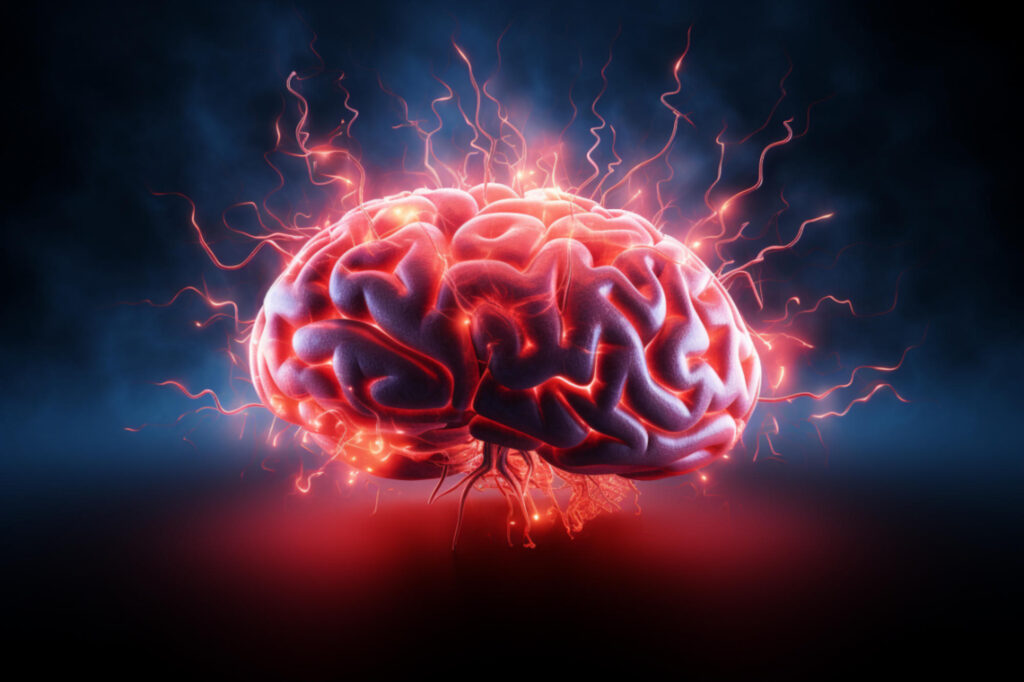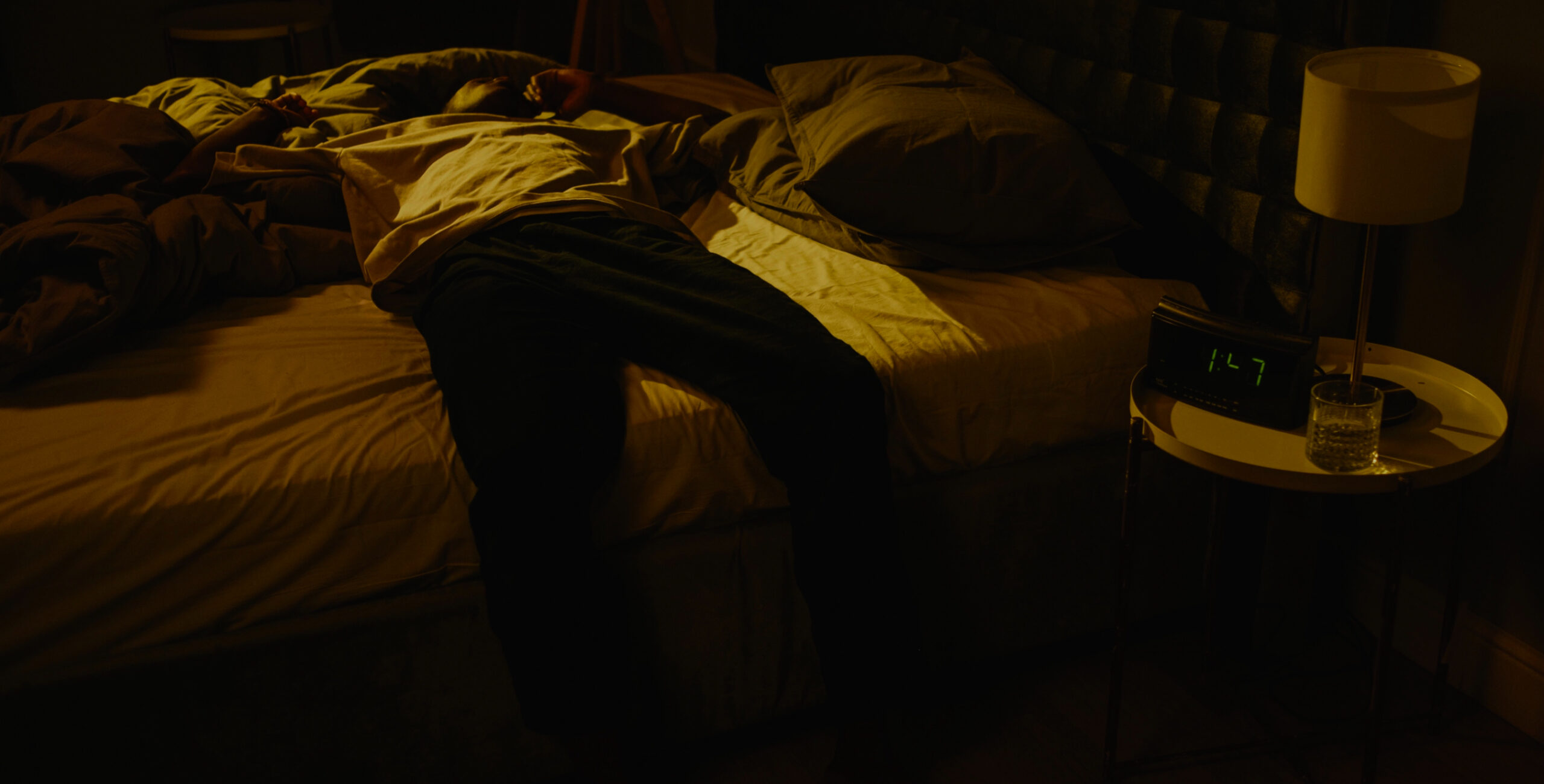We have all been able to experienced it at least once, insomnia! With multiple definitions as being a sign and symptom of what we normally define as difficulty to sleep. Insomnia can also be classified as a disorder affecting the quality of life of people worldwide, characterized by difficulty falling asleep, maintaining sleep, or achieving restorative sleep for the following day.
Current studies indicate that the prevalence of insomnia varies depending on the criteria used for classification, and can be divided in short term and chronic insomnia. Approximately 30% of individuals report insomnia symptoms, including:
- Difficulty falling asleep
- Difficulty conserving sleep
- Short sleep duration leading to premature wakefulness
- Poo quality of sleep affecting quality of life and daily routines
In contrast, up to 6-10% of individuals meet the diagnostic criteria for insomnia disorder as defined by the Diagnostic and Statistical Manual of Mental Disorders, Fourth Edition (DSM-V). The DSM-V established stricter criteria to identify cases with moderate to severe effects on individuals lives.
This variation in prevalence suggests multiple potential causes of insomnia, as not everyone experiencing symptoms has a disorder. In the following post, we will examine these potential causes, explore the physical and mental health effects of insomnia, review short term and chronic insomnia, and share practical solutions to promote restful nights!
Causes of Insomnia
Several risk factor have been describe for developing insomnia, they exist demographic factors that can influence the developing of this symptom/condition, as there are comorbidities associated:
- Age and gender: Women and older adults have been shown to develop more insomnia.
- Women present an increase of the development during onset of menses and in menopause.
- Older adults are thought to have an increase risk of development because of the presence of chronic medical conditions and due to the deterioration of the normal systems that regulate sleep control.
- Chronic medical conditions.
- Sleep disorders as restless legs syndrome, periodic limb movement disorders and breathing disorders related with sleep (e.g. snoring, sleep apnea)
- Psychiatric disorders (40%)
- Travel, caffeine late in the day.
- Stressful moments in life and thoughts.
- Hormonal changes as described during menses, pregnancy and menopause.
All of this have shown to increase the risk of developing insomnia, and can as we see, they also are causes that are modificable risks in their majority; so insomnia correction as a sign/symptom can be managed with lifestyle changes and improving sleep hygiene, not to say the same with the associated disorders.
Brain Changes On Insomnia

This is my favorite part of every post I write, and I hoe yours too! As here we explained what is happening to our normal body functions that leads to the development of all the effects related with insomnia. Tell me your thoughts on the comment section!
Insomnia is characterized by a hyperarousal disorder that exhibits a state of psychologic and physiologic arousal that can interfere with normal induction and conservation of sleep.
So there are two main theories that we will combine to explain the general aspects of what are the effects of insomnia and what can probably be the cause. This two models are:
- Cognitive
- Physiological
The cognitive model states that stressful thoughts, worry and ruminating thoughts (i.e. describe as repetitive and persistent focus on distressing thoughts, feelings or experiences) may disrupt sleep and cause acute episodes of insomnia induction. Long term this reflects as a persistent state of not being able to initiate sleep and return back to sleep after awakening, this ultimately makes people get worried about the fact that is no longer sleeping well and potentiates this state as it gets worried because of the sleep pattern, plus the things in their daily lives.
Now with the cognitive model, the physiological model acts to potentiate all this thoughts and manifest them physically. This leads to an activation of one axis on the Endocrine System called: Hypothalamus-Pituitary-Adrenal Axis, that mediates the release of cortisol into the bloodstream. Generally speaking, stress can activate the release of a set of hormones from these three glands that act on each other till the liberation of cortisol from adrenal glands. CRH-ACTH-Cortisol, are the hormones released from each gland, from the hypothalamus to the adrenal gland. Release of cortisol can have many effects, including the sensitization of the body to adrenaline, which can result on some of the effects developed on insomnia (e.g. anxiety, tachycardia, alertness). In people with insomnia, a high content of cortisol in urine and ACTH in plasma suggest this association.
Effects of Insomnia
So insomnia has a lot of effects, both physical and mental. Some of them are:
- Fatigue
- Difficulty paying attention
- Headaches
- Impaired performance on daily activities
- Anxiety
- Irritability
- Tachycardia
Some of this effects can lead to life changing complications and the developing of chronic diseases as heart disease, stroke, diabetes, depression, neurodegenerative diseases.
Short Term Versus Chronic Insomnia
This are two classifications that according to the International Classification of Sleep Disorders (ISCD-3). Both have different related causes, have different time for establishment and distinct diagnostic criteria.
The short term insomnia is characterized by symptoms related with issues on the quantity or quality of sleep. This symptoms are present whether or not the patient has the opportunity to get adequate sleep. This type on insomnia often presents with fatigue or low energy, frequent napping, difficulty concentrating, mood swings, impaired functioning on daily life activities, that are present over a period of 3 months.
The chronic insomnia often presents with the same symptoms for the last of 3 months and are present at least three times a week. This is also related with genetic factors in genes regulating the sleep-wake cycle and wake promoting chemicals of it, also a relation with proteins for cholesterol transport has been stablished.
Practical Solutions For Restful Nights
Finally, many non-pharmacological recommendations had been stablished for getting a better quality of sleep, particularly, changes on sleep hygiene is one of the most important factors that can help with a cozy rest at night.
1. Sleep Hygiene
Sleep hygiene is a major contributor to the appropriate induction of sleep. This includes the avoidance of caffeine or limitation of it, during day time. Also, exercise, alcohol and smoking should be avoided near bedtime. There are a lot of parameters that are included in this big topic, so I leave you here a Questionnaire for the Sleep Hygiene Index, that may give you a guide to what it is and how you can improve from the score you get. In general, the interpretation of the results is simple:

- Score ≥ 50: Problematic sleep behaviors than average, may be the contribution to sleep disturbances.
- Score ≥ 35: Poor sleep hygiene.
- Score 27-34: Generally consider normal.
- Score < 26: Good.
Hope you find it useful!
Note: This changes may not function alone in chronic insomnia.
2. Herbs

These have been used for the induction of sleep and for relaxation for centuries now. Many have been studied, and we will discuss some of them:
- Valerian Root: Has mixed results, but it does has shown to molecularly act on GABA-A receptor, which are receptors that mediate depressor effects on the brain. This may account for its effects, as it has been shown to optimize the sleep quality and latency. As well as being able to reduce the daytime sleepiness and anxiety.
- Kava kava: This extract comes from a herb called Piper methysticum, which is used for anxiety and insomnia, and also works on GABA receptor. BUT, this one has an special quality, which is that studies have shown that a chemical called kavain is able to shorten the sleep latency and decrease awake time, by regulating dopamine and serotonin levels in the brain.
- Lavender: Also a great and popular herb used in aromatherapy, it has shown that it has properties leading to an increase in the release of melatonin, promoting the induction of sleep.
3. Eye Masks And Earplugs

This are your allies, as they have shown to affect the quality of sleep positively. Particularly, they have been shown to reduce the environmental disturbances such as noise and light in a way that positively affected nocturnal melatonin and cortisol levels. These means that they are great to help upon induction of sleep and regulation of stress hormones by down regulating them to some degree. They have even shown these effects on critical ill patients on intensive care units, leading to a massive analysis on current studies.
Conclusion
Just like that, we’ve come to an end. The importance of having good sleep habits may be one of the many factors that are modificable and that on the long term would aim to help in regulating the circadian rhythm in every person. Insomnia symptoms have shown to be pretty important when they affect the quality of life and also have shown to increase the risk of some chronic diseases. We know that there is a lot to study for really understanding how our brain regulates sleep and what are the circumstances that may trigger the difference between insomnia as a symptom and insomnia as a disorder.
Hope the recommendations on sleep hygiene and to assess current practices help, and that this type of post’s are well written for all of you.
Disclaimer: The information provided in this blog post is for educational and informational purposes only and is not intended to diagnose, treat, or provide medical advice for any condition. Always consult a qualified healthcare professional for any medical concerns or questions you may have.
This post contains affiliate links.

